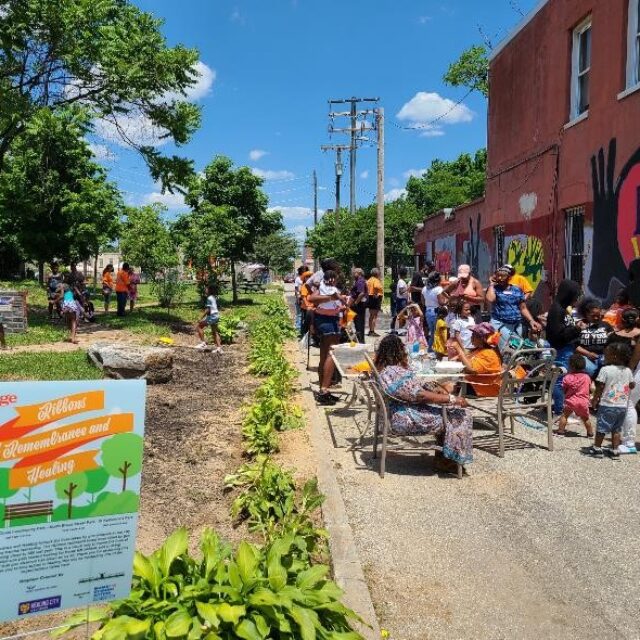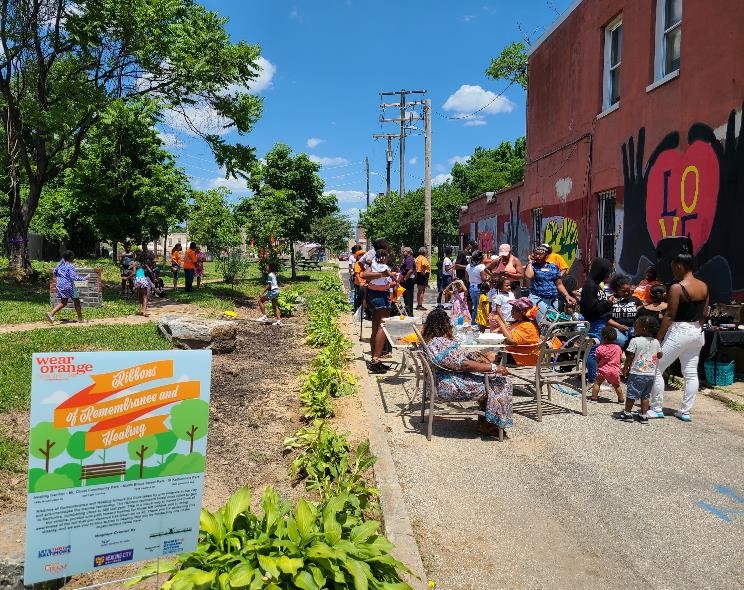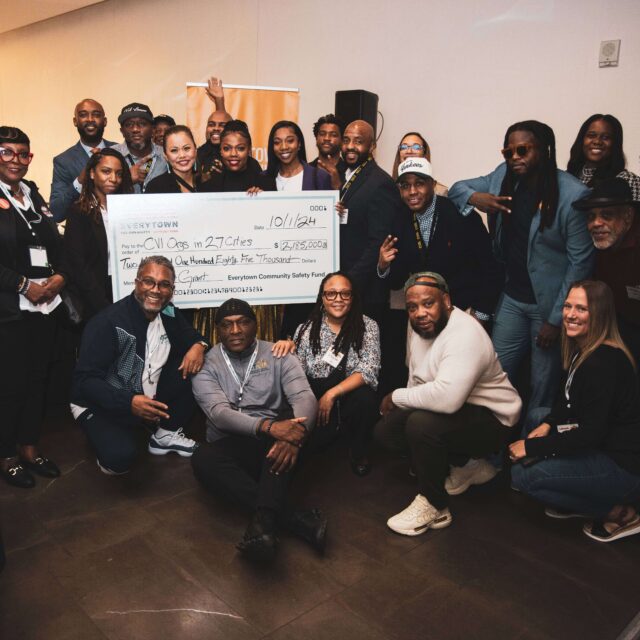Transformation in West Baltimore

10.5.2023
Tucked behind the bustling North Avenue corridor of West Baltimore lies the historic Black neighborhood of Sandtown-Winchester, which earned its name from a gravel quarry that once occupied the community.
Like many West Baltimore neighborhoods, Sandtown, as locals refer to it, has been on the receiving end of decades of disinvestment and systemic racism, stemming from socioeconomic hurdles such as the lack of employment or economic mobility.
And now Sandtown is being forced to contend with a more pressing issue: the proliferation of gun violence. Less than six months into the new year, the West Baltimore community has already seen 6 homicides and 14 shootings. Gun violence has left many in the Sandtown community feeling hopeless and disconnected from their own neighborhood.
This is where community groups like the Family Survivor Network come in.
Dorian Walker is the Executive Director of the Family Survivor Network (FSN), which was founded by the late Cornelius Scott in 2018 after his son was nearly killed by gun violence. FSN is a grassroots organization devoted to providing support to Baltimore families impacted by gun violence.
And in 2022, thanks to a grant provided by the Everytown Community Safety Fund, FSN partnered with the Maryland Moms Demand Action Chapter and several other community organizations to celebrate the resiliency of Sandtown residents and design a public space devoted to community healing and peace.
“With messages of love and peace, the space recognizes the harmful toll of gun violence while reminding us of the power of transformation.”
The James Rouse and Charles Johnson pocket park has been a longtime fixture within the Sandtown community, but the space had been rarely used by community members due to a lack of maintenance and investment. According to Dorian, the Everytown Community Safety Fund’s Crime Prevention Through Environmental Design grant initiative presented a perfect solution to a longtime community problem.
Crime Prevention Through Environmental Design changes the environment to reduce crime and increase community safety. Violence can be discouraged by visible signs that a community is cared for and watched over.
Volunteers and community members worked together to develop a design for the pocket park, clear trash, rocks and debris, and replace weeds and overgrowth with daffodils and decorative plants, as well as carving a walking path through the park, reseeding damaged grass, and refurbishing a stage designed for hosting community events.

The FSN also hosted a CommUNITY Family Fun Day where families, volunteers, and local leaders joined together to celebrate the amazing transformation planned for the pocket park, as a way of building connections with community members and creating stronger community bonds. People who joined enjoyed face painting, water slides, and hula hooping. This celebration of community transformation illustrated the power of collective action, while recruiting more volunteers to support the project.
The following month, community partners, FSN, and Maryland Moms Demand Action leaders— joined by local elected officials, law enforcement, and community leaders—came together again on National Gun Violence Awareness Day, also known as Wear Orange, for a community celebration of the project and to honor those who lost their lives to gun violence.
Today, the pocket park serves as a calming and tranquil open space for a community which all too often lacks social infrastructure and amenities. With messages of love and peace, the space recognizes the harmful toll of gun violence while reminding us of the power of transformation—pointing toward a future with both change and hope for the Sandtown community.
Learn more about the Family Survivor Network.
About LISC
Local Initiatives Support Corporation (LISC), through its Safety & Justice national program, is an Everytown for Gun Safety partner and technical assistance provider for safer neighborhoods. LISC provides expertise on neighborhood-based responses to safety challenges, including place-based strategies, across the nation. Working with community-based organizations, local government, philanthropic organizations, and as a training and technical assistance provider to the U.S. Department of Justice, LISC promotes collaborative and equitable solutions to reduce safety challenges and address root causes of crime and victimization.





